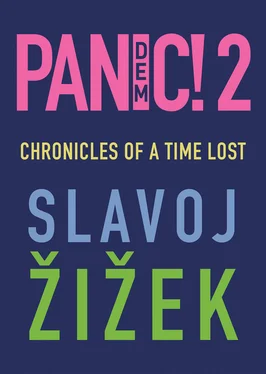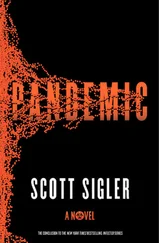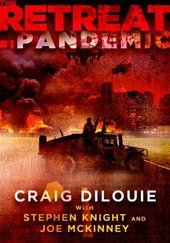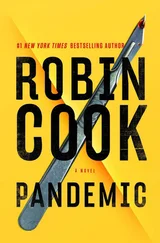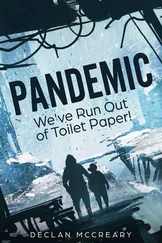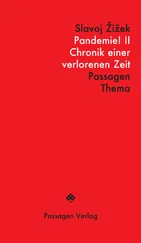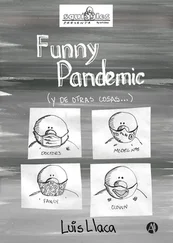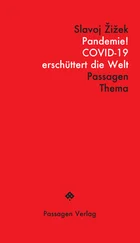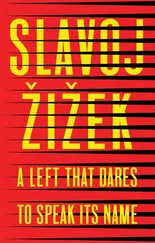At this point, I can hear the laughter of my critics (as well as some friends) who mockingly note how the pandemic means that my time as a philosopher is over: who cares about a Lacanian reading of Hegel when the foundations of our existence are threatened? Even Žižek now has to focus on how to bring in the harvest.
But these critics couldn’t be more wrong. The ongoing pandemic hasn’t just brought out social and economic conflicts that were raging beneath the surface all along; it hasn’t just confronted us with immense political problems. More and more, it has become a genuine conflict of global visions about society. At the beginning of the crisis, it looked as if a kind of basic global solidarity, with the accent on helping those most threatened, would prevail; however, as John Authers puts it, this solidarity has gradually “given way to a bitter factional and cultural battle, with rival moral principles hurled like metaphysical grenades. Different countries have taken antithetical approaches while the US has split itself almost into two nations, divided between those who wear masks and those who do not.” 2
This conflict is a serious existential one, so that one cannot simply make fun of those who refuse to wear masks. Here is how Brenden Dilley, an Arizona chat-show host, explained why he doesn’t wear a mask: “Better to be dead than a dork. Yes, I mean that literally. I’d rather die than look like an idiot right now.” Dilley refuses to wear a mask since, for him, wearing one is incompatible with human dignity at its most basic level.
That’s why it is now entirely appropriate for a philosopher to write about bringing in the harvest: the way we deal with this problem ultimately depends on our basic stance toward human life. Are we, like Dilley, libertarians who reject anything that encroaches on our individual freedoms? Are we utilitarians ready to sacrifice thousands of lives for the economic well-being of the majority? Are we authoritarians who believe that only strong state control and regulation can save us? Are we New Age spiritualists who think the pandemic is a warning from Nature, a punishment for our exploitation of natural resources? Do we trust that God is just testing us and will ultimately help us to find a way out? Each of these stances rests on a specific vision of what human beings are. To that extent, in proposing how to tackle the crisis, we must all become philosophers.
1 1. https://fortune.com/2020/05/29/farm-workers-test-positive-coronavirus-covid-19-tennessee/
2 2. See https://www.yahoo.com/finance/news/golden-rule-dying-covid-19-040107765.html
1. WHAT WE DON’T KNOW, WHAT WE DON’T WANT TO KNOW, AND WHAT WE CAN DO
In the Marx Brothers’ Duck Soup , Groucho (as a lawyer defending his client in court) says: “He may look like an idiot and talk like an idiot but don’t let that fool you. He really is an idiot.” Something along these lines should be our reaction to those who display a basic distrust of the state by seeing the lockdown as a conspiracy designed to deprive us of our basic freedoms: “The state is imposing lockdown orders that curtail our liberty, and it expects us to police one another to ensure compliance; but this should not fool us—we should really follow the lockdown orders.”
One should note how calls to abolish lockdowns come from opposite ends of the traditional political spectrum: in the US, they are propelled by libertarian Rightists, while in Germany, small Leftist groups advocate them. In both cases, medical knowledge is criticized as a tool for disciplining people, treating them as helpless victims who should be isolated for their own good. What is not difficult to discover beneath this critical stance is the attitude of not-wanting-to-know: if we ignore the threat, it will not be so bad, we’ll manage to get through it … The US libertarian Right claims lockdowns should be eased in order to give people back their freedom of choice. That raises the question: what freedom? As ex–Labor Secretary Robert Reich wrote: “Trump’s labor department has decided that furloughed employees “must accept” an employer’s offer to return to work and therefore forfeit unemployment benefits, regardless of Covid-19. Forcing people to choose between getting Covid-19 or losing their livelihood is inhumane.” 1The “free choice” is, here, one between starvation and risking your life. The situation is reminiscent of that of an eighteenth-century British coal mine, wherein just doing one’s job involved a considerable risk of loss of life.
But there is a different kind of ignorance that sustains the imposition of severe lockdown measures. It’s not as simple as the state power exploiting the pandemic to impose total control—increasingly, I think that there is a kind of superstitious symbolic act at work here: a logic that says that if we make a strong enough gesture of sacrifice that brings our entire social life to a standstill, then maybe we can expect mercy. The surprising fact is how little we (and I include here the scientists) seem to know about how the pandemic works. Quite often we receive contradictory advice from the authorities. We get strict instructions to self-isolate in order to avoid viral contamination, but when the infection numbers start falling the fear arises that our actions are only making us more vulnerable to the anticipated “second wave” of the viral attack. Or are we counting on the hope that a vaccine will be found before the next wave? And as there are already different variations of the virus, will one vaccine cover them all? All the hopes for a quick exit (summer heat, herd immunity, a vaccine.) are fading away.
One often hears that the pandemic will compel us in the West to change the way we relate to death, to accept our mortality and the fragility of our existence—a virus comes out of nowhere and life as we know it is over. This is why, so we are told, people in the Far East are much better able to come to terms with the pandemic—for them, death is just a part of life, of the way things are. We in the West less and less accept death as part of life, we see it as an intrusion of something foreign that can be indefinitely postponed if you lead a healthy life, exercise, follow a diet, avoid trauma. I never trusted this story. In some sense, death is not a part of life, it is something unimaginable, something that shouldn’t happen to me. I am never really ready to die, except to escape unbearable suffering. That’s why these days many of us focus obsessively on the same magic numbers: how many new infections, how many full recoveries, how many new deaths. But, horrible as these numbers are, does our exclusive focus on them not make us ignore a much greater number of people dying of other causes like cancer or a heart attack? Outside the virus there is not just life; there is also plenty of dying and death. Perhaps it would be better to look at death rates comparatively: today, this many people died from Covid-19 while this many succumbed to cancer.
We should change our imaginary here and stop expecting one big clear peak after which things will gradually return to normal. What makes the pandemic so unbearable is that even if the full Catastrophe fails to appear, things just drag on—we are informed that we have reached the plateau, then things improve a little bit, but the crisis continues. As Alenka Zupančič put it, the problem with the idea of the end of the world is the same as with Fukuyama’s end of history: the end itself doesn’t end, we just get stuck in a weird immobility. The secret wish of us all, what we think about all the time, is only one thing: when will it end? But it will not end: it is reasonable to see the ongoing pandemic as announcing a new era of ecological troubles. Back in 2017, the BBC portrayed what awaits us as a result of the ways we intervene in nature, reporting that “Climate change is melting permafrost soils that have been frozen for thousands of years, and as the soils melt they are releasing ancient viruses and bacteria that, having lain dormant, are springing back to life.” 2
Читать дальше
